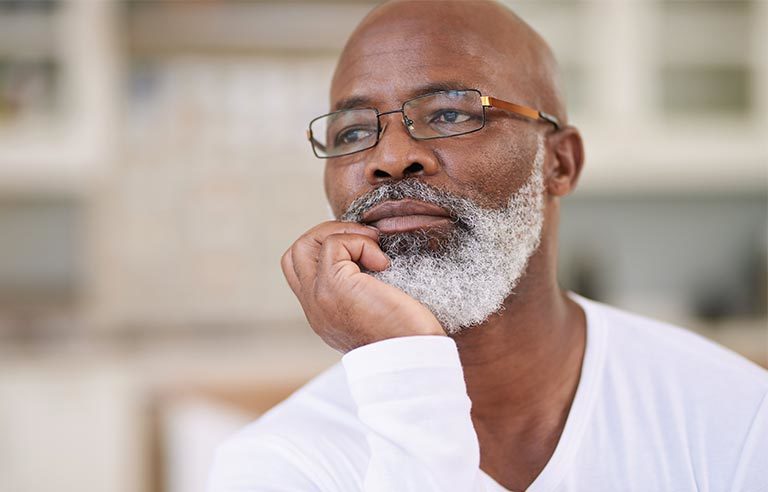Depression
You’re not alone

Feeling sad or unhappy at times is normal – especially during the COVID-19 pandemic. Many of us are doing our best to cope with anxiety and isolation.
But at what point does that sadness progress into depression?
“You can usually think about clinical depression being clinical when it lasts for two or more weeks, with most days or most of the time being down in the dumps or blue, or unable to enjoy the things you usually enjoy,” said Mark Bauer, who is professor emeritus of psychiatry at the Harvard Medical School and an investigator with the Department of Veteran Affairs’ Center for Healthcare Organization and Implementation Research.
Symptoms of depression
Depression can have many symptoms:
- Loss of interest or pleasure in activities or hobbies you once enjoyed
- Lack of energy or tiredness
- Changes in sleep – too much or not enough
- Changes in diet – reduced appetite or overeating
- Slowed thinking, speaking or movement
- Trouble thinking or concentrating
- Feelings of worthlessness or guilt
- Unexplained physical aches or pains
- Prolonged feelings of sadness, hopelessness or emptiness
- Unexplained crying spells
Some of the most severe symptoms involve thoughts of suicide or death. These require immediate attention. If you or someone you know is having these thoughts, seek medical help right away or call the National Suicide Prevention Lifeline at (800) 273-8255.
Post a comment to this article
Safety+Health welcomes comments that promote respectful dialogue. Please stay on topic. Comments that contain personal attacks, profanity or abusive language – or those aggressively promoting products or services – will be removed. We reserve the right to determine which comments violate our comment policy. (Anonymous comments are welcome; merely skip the “name” field in the comment box. An email address is required but will not be included with your comment.)
